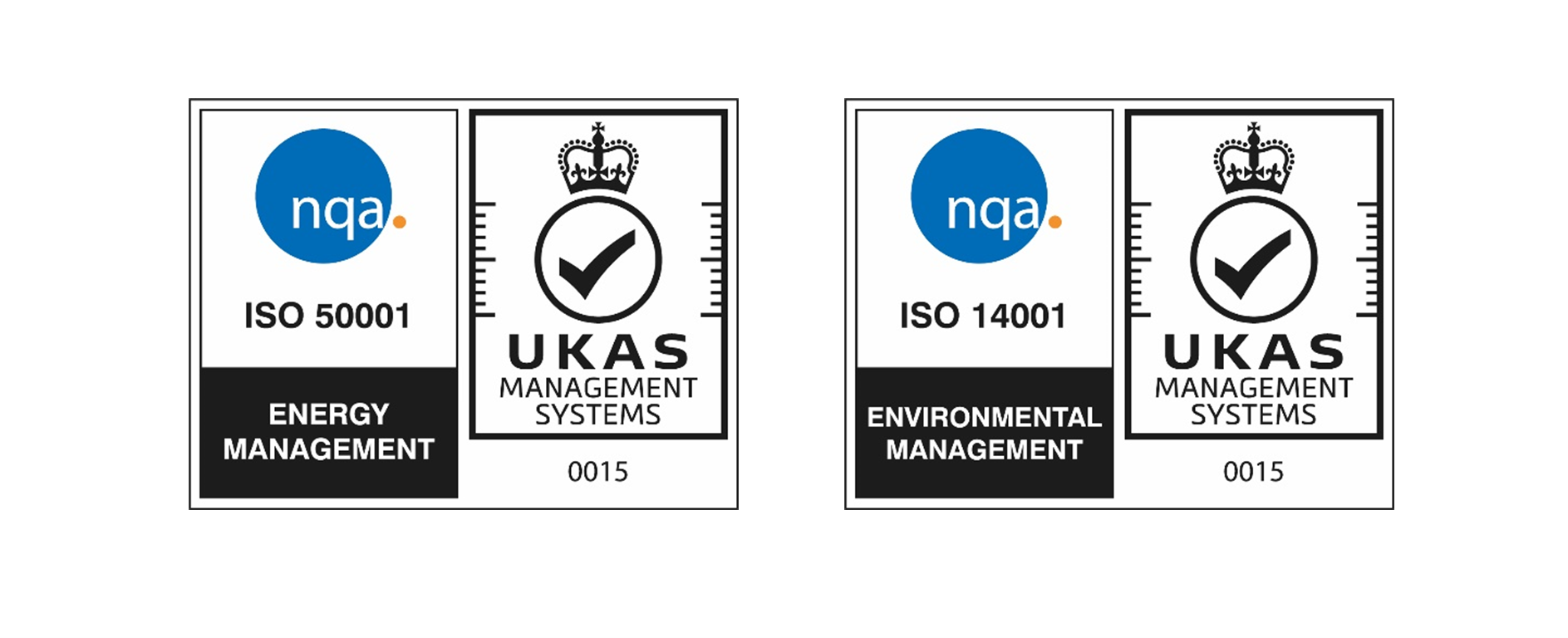Environmental and Energy Management
Our Environmental and Energy Management Systems provide a framework for the University to monitor and reduce its environmental impacts.
Impacts on the environment
We recognise the diverse and numerous impacts that university services and activities have on the environment. These are recorded in the Aspects and Impacts Register v8 (Excel workbook: 163 KB).
Energy Management System (EnMS)
Our Energy Management System (EnMS) is certified to ISO 50001 (PDF: 340 KB).
The EnMS provides a framework which allows the University to monitor, measure and endeavour to reduce its overall energy consumption and carbon footprint. ISO 50001 requires us to set periodic objectives, targets and action plans, reflecting our continual improvement in energy performance.
Energy performance indicators have been identified following establishment of an energy baseline derived from the energy review.
Details of the Key Energy Performance Indicators (K-EnPIs) can be found in the EMS & EnMS Action Plan (Excel: 676 KB).
Energy Management Planning
As part of our EnMS, we undertake an annual energy review to plan for, and monitor against, our energy objectives and targets and formulate appropriate action plans. This energy review ranks all our UK buildings and sites according to total energy consumption (kWh) where those which fall within the top 90% are considered for energy saving opportunities.
Significant energy users
We've created Operational Control Procedures to control our significant energy uses. These include building systems such as heating, ventilation and Air Handing Units (AHUs), as well as factors such as User Engagement.
For more information, e-mail sustainable.campus@ncl.ac.uk
Key performance indicators
We set objectives and periodically identify targets so that we can continually improve our environmental and energy performance.
These are shown in the Environmental and Energy Policies. The (Excel workbook: 423 KB) also includes a full list of Key Performance Indicators (KPIs) and SMART targets.
Procedures
There are a number of staff Operational Control Procedures and Work Instructions that control significant environmental aspects and energy uses. These procedures are integral parts of our EMS and EnMS.
For more information or to request a copy of one of the procedures, email sustainable.campus@ncl.ac.uk.
Legislation
There are many pieces of environmental legislation that the University needs to comply with, many of which are in place in order to reduce environmental harm relating to our business activities.
Failure to comply with legislation can have severe consequences such as fines, or imprisonment. All members of staff should be familiar with the legislation which affects them. If you have any queries relating to environmental legislation, please contact Sustainable Campus.
Details of applicable legislation, as well as other compliance obligations that we subscribe to are detailed in the Compliance Obligations Register (Web Version) (Excel workbook: 31 KB).
Communications
If you receive any communication from external bodies such as:
- Environment Agency,
- DEFRA
- Northumbrian Water
relating to the environment or environmental impacts, forward copies to sustainable.campus@ncl.ac.uk to ensure that records of this correspondence is maintained.
Student involvement
Students have played an important role in developing and improving our management systems. We have collaborated with students on related dissertation projects, some of which are listed below. You can find more information about how to get involved on our Student Action page.
Past dissertations
- Bringing the Environmental Management System (EMS) of Newcastle University in line with the updated ISO 14001:2015 International Standard - Luke Whittaker (2017)
- Implementing ISO 14001:2015 evaluating its effectiveness in higher education settings - Kathryn Hall (2016)
- Evaluating the costs and benefits of implementing an ISO 50001 Energy Management System and its integration with an ISO 14001 Environmental Management System - Sam Boot (2015)
- Energy review to implement ISO 50001 at Newcastle University - Laura Diaz-Silvarrey (2013)
- The implementation of EcoCampus Platinum phase and ISO 14001 at Newcastle University - Sean Jobling (2012)
- An evaluation of the effectiveness of the EcoCampus Environmental Management System at Newcastle University - James Upstill-Goddard (2011)
- Environmental Management Systems within Higher Education - Adam White (2010)
- Implementing EcoCampus at Newcastle University - Tairat Bashorun (2009)


